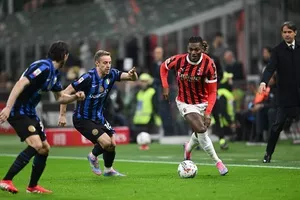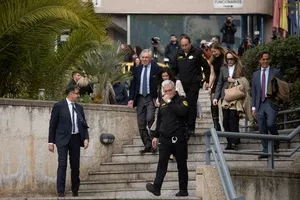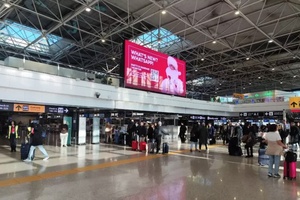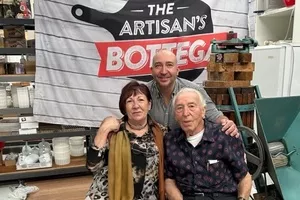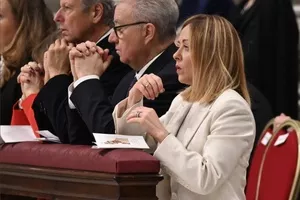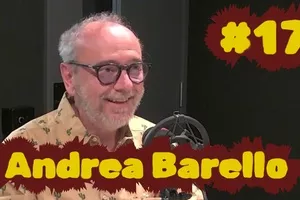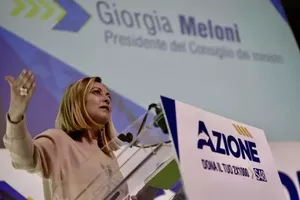After the last few years of seemingly endless lockdowns, periods of restrictions and uncertainties about the future, it is no surprise that many people are experiencing a feeling of lingering fatigue.
There is a sense of failure in the air, brought about by the two-year hold placed on our lives, as many of us resume our frenetic, goal-oriented existences.
This sentiment dominates After Aida, a musical-theatre production that tells the story of Verdi’s reluctance to continue composing after his retirement.
Verdi’s friends and family urge him to resume his work and, ultimately, one of the composer’s greatest masterpieces, the opera Otello, is born.
This production, written by Julian Mitchell, was commissioned by Brian McMaster, the managing director of the Welsh National Opera, in 1985.
After Aida gives audiences a glimpse into the challenges faced by Verdi – not just as one of the greatest composers in history – but as a human being.
The production will be staged at the Atheneum Two, in English, and will include several musical numbers.
“There will be works by Verdi, Boito, Rossini, the Rigoletto quartet, and plenty of music from Otello,” musical director Adrian Tamburini said.
“The audience will be able to bask in Italian music throughout the show.”
Tamburini was born in Melbourne to migrant parents, his father from Massa Carrara and his mother from Treviso.
He began singing at the young age of five, his passion for music driving his career from strength to strength over the years.
“In 1990, when the three tenors – Luciano Pavarotti, Jose Carreras and Placido Domingo – sang at the World Cup, I fell in love with opera and decided to become a singer,” Tamburini said.
Tamburini worked with Opera Australia for over 12 years, collaborating with the West Australian Symphony Orchestra and the Melbourne Opera.
He later founded the Pure Harmony Music Studio in the iconic Nicholas Building on Swanston Street.
“I love teaching singing and piano to my students and I enjoy watching them progress,” Tamburini said.
He also works as a director and a producer, and chooses to work exclusively with people he respects.
“If I embark on a new project, I like to involve people who I know and admire,” he explained.
“I handpicked all the singers for this show.”
The show’s plot is set in 1879 and begins after Verdi’s 10-year hiatus from composing.
His friends – publisher Giulio Ricordi, conductor Franco Faccio – and wife, Giuseppina, hatch a friendly conspiracy to get Verdi back to work.
“After the Requiem, composed in 1875, Verdi said that he had had enough,” Paolo Bartolomei, the actor portraying Verdi, said.
“Then, in 1879, he dedicated himself to composing Otello, which was published in 1887.”
Bartolomei was born in Rome and, after graduating with a degree in Art History, he migrated to Australia in 2016.
The actor had extensive dance experience and became the first international student at the National Theatre.
Bartolomei earned a scholarship and studied there for three years.
When the COVID-19 pandemic struck, the actor landed a role in The Newsreader and collaborated on a play as assistant director.
“To be honest, after such a long break during the pandemic, I felt unfamiliar with the stage and apprehensive about performing again,” Bartolomei confessed.
“Despite this, I decided to get back in the game and face my fears.
“One day, out of the blue, I received a call from the director, David Meadows, who told me he had a role that would be perfect for me, so I accepted straight away.”
Bartolomei has enjoyed getting into character as Giulio Ricordi.
“He’s the classic Italian businessman who wants to be successful,” he explained.
“Ricordi pushes Verdi to create this new opera in the show, but I think, in reality, their relationship was based on sincere respect.
“Despite appearances, Ricordi’s character is honest and he’s a true friend to Verdi.
“After Aida is a unique show – I’ve never heard of a production that so masterfully intertwines opera with historical events.”
The timing of this production is particularly apt, as artists slowly begin to resume their craft after two years of interruptions, highlighting the age-old connection between creatives and their craft.
For more information or to buy tickets, visit the website


















